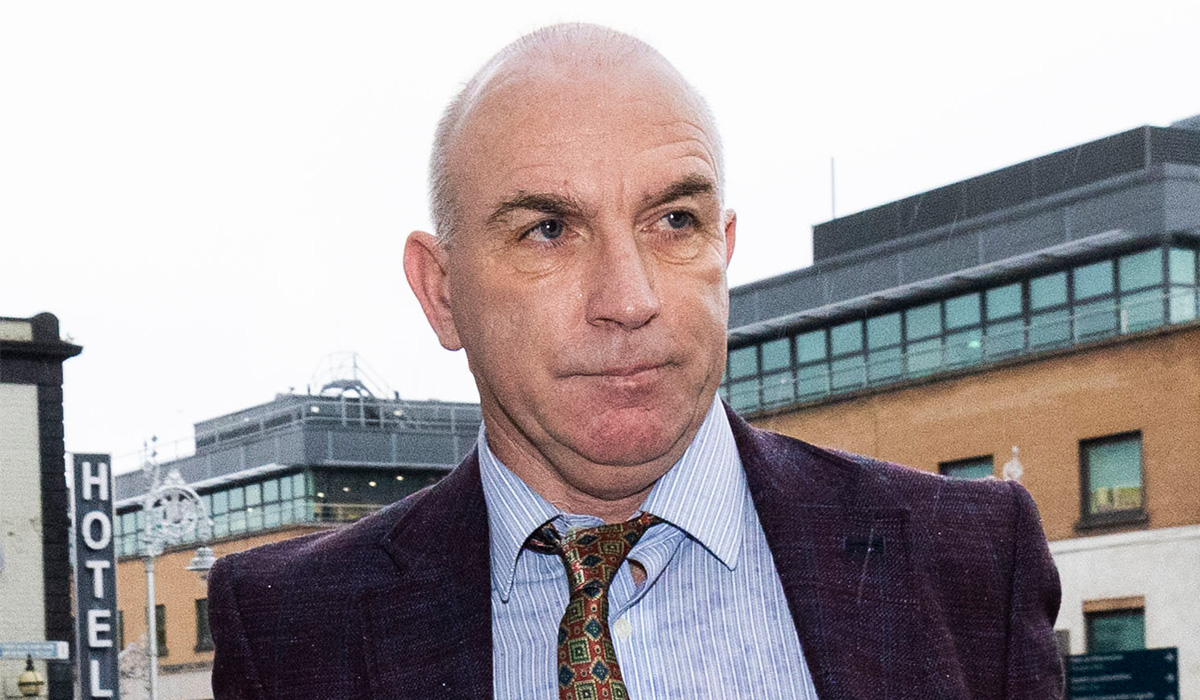Health
Victims Reveal DJ Carey’s Deceptive Fundraising Tactics

DJ Carey, a former hurling star, has come under scrutiny after multiple individuals revealed he deceived them into donating money under the pretense of needing treatment for cancer. Carey discouraged the idea of setting up a GoFundMe page, fearing that it might draw unwanted attention due to his family connections, particularly his sister, Catriona Carey, who faces charges related to money laundering.
Christy Browne, one of the victims, disclosed that he initially suggested creating a crowd-funding page to assist Carey. Browne recounted Carey’s response: “No, don’t do a GoFundMe page, because there is a possibility then that with the Carey name, they might actually think it’s related to his sister.” This revelation underscores the complex web of deceit that Carey crafted, impacting not only his victims but also his family’s reputation.
Instead of launching an online fundraiser, Browne and two friends collected funds to support Carey’s claims of needing urgent medical care. Reflecting on his experience, Browne expressed regret, stating, “I had to explain myself to a lot of people… I was tricked into this and then I gave misinformation to them.” Over time, Browne had multiple conversations with Carey, who presented a convincing narrative about his illness.
Browne was not alone in his experience. The court proceedings this week revealed that several others had also been misled. Among them was Tony Griffin, a former Clare hurler, who, like Browne, had a personal connection to Carey through their shared sporting backgrounds.
Carey claimed he required funds to travel to Seattle for essential treatment. After receiving the money, he contacted Browne to inform him that the treatment was completed, but subsequent attempts to reach Carey were met with silence. Browne later learned that a fraud investigation was underway, leaving him feeling betrayed.
“I feel bad about it and I feel let down by someone I know through a sporting background,” Browne stated. “That they’d contact me, I go out, do my best, and then realise it was for his own benefit, rather than his illness.”
Another victim, Thomas Butler, who donated €16,000, expressed his devastation in an impact statement, particularly because both of his parents had succumbed to cancer. Butler had previously volunteered for the Irish Cancer Society and was shocked to discover that Carey had exploited his charitable nature. “He was obtaining money by lying that he needed finance to obtain lifesaving cancer treatment,” Butler noted.
In a particularly troubling instance, Carey reached out to Aidan Mulligan after the death of Mulligan’s wife. Offering condolences, Carey then solicited funds for treatment, resulting in Mulligan sending him €8,500.
As the victims’ stories unfold, they highlight a broader theme of trust and betrayal within the community. Many of those who contributed to Carey’s supposed medical expenses now grapple with feelings of guilt and betrayal. The impact of this deception extends beyond financial loss, affecting personal relationships and community dynamics.
The case continues to develop, with authorities investigating the extent of Carey’s actions. The revelations serve as a stark reminder of the importance of vigilance when it comes to charitable contributions, particularly in cases where personal connections are involved.
-

 Top Stories3 months ago
Top Stories3 months agoTributes Surge for 9-Year-Old Leon Briody After Cancer Battle
-

 Entertainment4 months ago
Entertainment4 months agoAimee Osbourne Joins Family for Emotional Tribute to Ozzy
-

 Politics4 months ago
Politics4 months agoDanny Healy-Rae Considers Complaint After Altercation with Garda
-

 Top Stories4 months ago
Top Stories4 months agoIreland Enjoys Summer Heat as Hurricane Erin Approaches Atlantic
-

 World5 months ago
World5 months agoHawaii Commemorates 80 Years Since Hiroshima Bombing with Ceremony
-

 Top Stories3 months ago
Top Stories3 months agoNewcastle West Woman Patricia Foley Found Safe After Urgent Search
-

 Top Stories5 months ago
Top Stories5 months agoFianna Fáil TDs Urgently Consider Maire Geoghegan-Quinn for Presidency
-

 World5 months ago
World5 months agoCouple Convicted of Murdering Two-Year-Old Grandson in Wales
-

 World5 months ago
World5 months agoGaza Aid Distribution Tragedy: 20 Killed Amid Ongoing Violence
-

 World5 months ago
World5 months agoAristocrat Constance Marten and Partner Convicted of Infant Murder
-

 Top Stories4 months ago
Top Stories4 months agoClimbing Errigal: A Must-Do Summer Adventure in Donegal
-

 Top Stories4 months ago
Top Stories4 months agoHike Donegal’s Errigal Mountain NOW for Unforgettable Summer Views









